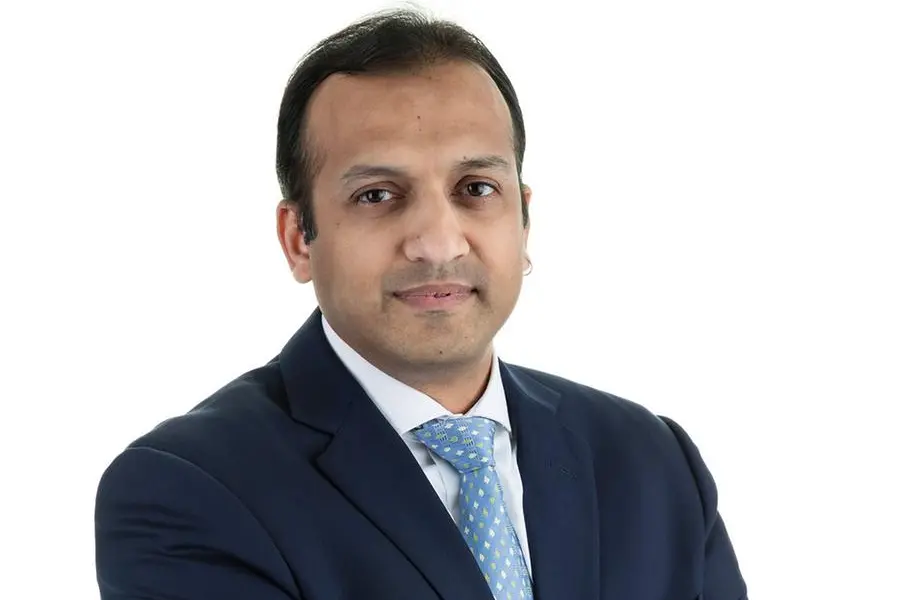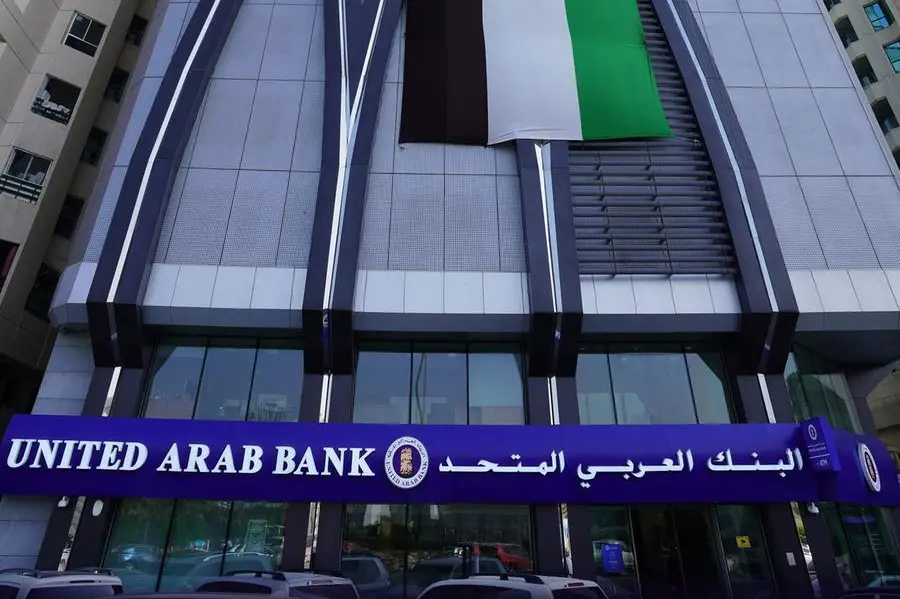Investment in fintech anticipated to have a soft start in 2024
Global fintech investment witnessed a slowdown as investors worldwide chose to preserve their funds. Pulse of Fintech H2’23, KPMG’s bi-annual publication surrounding global fintech investment trends, found that fintech investments dropped from US$196.6b across 7,515 deals in 2022 to US$113.7b across 4,547 deals in 2023. The report highlighted that while 2023 was a challenging year for the fintech market overall, it was a combination of geopolitical events, high interest rates and the parched exit environment that drove the downturn.
Much like global, fintech investment in the Europe, Middle East, and Africa (EMEA) region dropped to a seven-year low of US$24.5b across 1,514 deals in 2023, compared to the US$49.6b across 2,478 deals in 2022. However, the region’s fintech market displayed robust geographic diversity as fintechs from seven different countries represented the top ten deals in the region, with the United Arab Emirates’ Tabby (US$950m) and Haqqex (US$400m) being among the standouts.
Commenting on the outlook for fintech investment in Kuwait, Ankul Aggarwal, Partner and Head of Deal Advisory, KPMG in Kuwait, said, “Kuwait’s fintech sector is rapidly catching up with the global markets and witnessing an increase in the industry participants such as digital payments facilitators, insurtech, and P2P platforms, among others.
The Central Bank of Kuwait (CBK) has created an enabling environment for fintech innovation, implementing a range of initiatives, such as updated e-payment regulations and digital banking guidelines. Additionally, CBK is also working towards an open banking framework.”
According to the report, H1’24 in the EMEA region will see a growing focus on embedded finance and banking offerings, adoption of the Buy Now Pay Later (BNPL) model, consolidation within the BNPL space, asset tokenization, and artificial intelligence (AI) based solutions around fraud prevention and customer services.
Ankul further added, “In Kuwait, largely, fintech companies are focusing on the unbanked and underbanked segments of the market to carve a niche for themselves and offering related solutions, while traditional banks are moving towards adopting value-added solutions approach focusing on embedded finance and banking offerings.”
On a sectoral level, proptech and ESG proved to be hotbeds for investors with proptech-based investment reaching an all-time high of US$13.4b globally. According to the report, 2023 was the second-best year in terms of ESG fintech investment as it doubled to reach US$2.3b year-over-year (YOY). Given the ongoing regulatory changes and ambitious net zero commitments displayed by governments and businesses, it is likely that ESG-focused fintech solutions will chart an upward trend heading into 2024.
Moreover, investor interest in AI continued to peak in the fintech market as AI-driven fintech companies accounted for US$12.1b in investment in 2023. The report underlines that while this reflects a decline in funding compared to the US$28.1b in 2022, it does not demonstrate falling interest in the space, given many financial organizations and fintechs adopted AI through alliances and product spend instead of doing it through direct investment.
Here are some of the other highlights that emerged from the report:
- The Americas attracted US$78.3b across 2,136 deals in 2023 — of which the US accounted for US$73.5b across 1,734 deals — while the EMEA region attracted US$24.5b across 1,514 deals, and the ASPAC region attracted US$10.8b across 882 deals.
- Global M&A deal value dropped from US$98.2b in 2022 to US$56.4b in 2023; global venture capital (VC) investment declined from US$88.8 billion to US$46.3 billion year-over-year. Private equity (PE) growth investment showed the most resilience, up from US$9.6b in 2022 to US$11b in 2023.
- Payments remained the strongest area of fintech investment globally in 2023, with US$20.7b in investment compared to US$58b in 2022; 2023 investment in other notable sectors included proptech (US$13.4b), insurtech (US$8.1b), crypto and blockchain (US$7.5b), regtech (US$2.6b), ESG fintech (US$2.3b), and cybersecurity (US$1.3b)
- Corporate-participating VC investment globally fell from US$45.9b in 2022 to US$25.2b in 2023.
The biannual analysis anticipates fintech investment to remain slow heading into the first quarter of 2024, helmed by ongoing global conflicts, surging interest rates, and the continued lack of exits. The expectation is as interest rates stabilize, and potentially decline, AI and B2B (business-to-business) solutions will likely emerge as a top priority for investors. The report predicts that mergers and acquisitions (M&A) activity could also rebound as investors begin to look more closely at distressed assets.
Chris Dixon, a partner who led the charge, says he has a ‘very long-term horizon’
Americans now think they need at least $1.25 million for retirement, a 20% increase from a year ago, according to a survey by Northwestern Mutual
Total income was higher by 10% year-on-year (YoY) at AED 300 million in the six-month period
United Arab Bank PJSC (UAB or “the Bank”) has announced its financial results for the six months ended 30th June 2024. UAB reported a net profit before tax of AED 152 million for H1 2024, a 26% increase compared to AED 121 million for H1 2023. The net profit after tax for H1 2024 stood at AED 139 million, up 15% from AED 121 million in the same period last year. Earnings per share rose to AED 0.07 in H1 2024 from AED 0.06 in H1 2023.
Total income increased by 10% year-on-year to AED 300 million for H1 2024, compared to AED 273 million for H1 2023, driven by a 26% increase in net interest income. The Bank’s capital position remains strong with a CET1 ratio of 13% and a total capital adequacy ratio (CAR) of 18%.
UAB‘s liquidity profile is robust, with advances to stable resources ratio of 75% and an eligible liquid asset ratio of 19%, both comfortably above regulatory thresholds. The Bank’s credit ratings were affirmed by Fitch and Moody’s at BBB+/Ba1, with stable and positive outlooks respectively.
UAB’s performance in the first half of 2024 demonstrates significant growth in total assets, increasing by 12% compared to December 2023, and reflects a strategic focus on quality and farsighted risk management. These results indicate that the Bank is well-positioned to continue its growth trajectory.
Commenting on the Bank’s performance, H.H. Sheikh Mohammed bin Faisal bin Sultan Al Qassimi, Chairman of the Board of Directors of United Arab Bank, said: “UAB’s strong performance in the first half of 2024 reflects the successful implementation of our growth strategy and reinforces our commitment to delivering sustainable value to our shareholders. We are confident that our prudent business model shall continue to deliver a solid performance and deal with the opportunities and challenges that will present themselves.”
He added: “As we move ahead into the second half of the year, we remain committed to enhancing our customers’ banking experience and contributing to the growth and prosperity of the UAE’s economy.
Shirish Bhide, Chief Executive Officer of United Arab Bank, commented: Our customer-centric approach and sustainable growth model has led to a 15% increase in net profit and a 12% growth in total assets. Our positive performance is a testament to the successful execution of our strategic priorities and clear evidence of the success of the many initiatives that have been implemented at the Bank. Going forward, we will continue investing in our growth strategy and digital capabilities, while equally focusing on developing innovative products and services that meet our customers aspirations whilst upholding the highest standards of compliance and internal controls.”
Chris Dixon, a partner who led the charge, says he has a ‘very long-term horizon’
Americans now think they need at least $1.25 million for retirement, a 20% increase from a year ago, according to a survey by Northwestern Mutual

















